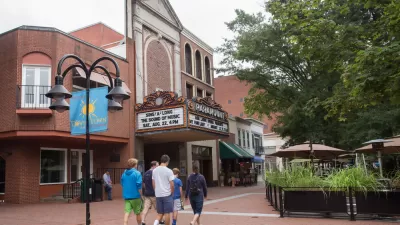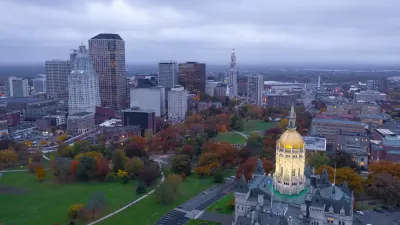Public hearings are underway in Raleigh to discuss the zoning changes necessary to implement the city's Unified Development ordinance. Heated rhetoric was inevitable.
Jane Porter reports on the lessons available from a process to rezone the city of Raleigh, following a contentious City Council hearing earlier this month.
"Convinced there's some jiggery-pokery going on in the city's planning department, or on Council, or somewhere, one resident after another railed (in two-minute bursts, lest they run afoul of Mayor Nancy McFarlane's merciless timekeeping) for three long hours against increasing density just about anywhere in the entire city," according to Porter.
"Despite the furor, this remapping was neither new nor unexpected. In fact, the city had been building up to it for years—first with the comprehensive plan in 2010, then with the Unified Development Ordinance in 2013. Now the city is determining which areas fall within the new zoning districts created by the UDO," reports Porter.
The main point of the article is to list ten things Porter learned at the most recent hearing. The list provides commentary on every side of the debate. So, for instance, on item notes that the "city has a communications problem" and another says "Oakwood people are high maintenance." Couched in the commentary, however, are lots of observations about the nitty gritty proposed by the zoning changes meant to implement the UDO.
One thing the article makes clear: the slightest hint of density is a live wire in the debate over Raleigh's UDO. For more insight into how the city of Raleigh is approaching its continuing growth, Planning Director Ken Bowers recently spoke with Josh Stephens as the latest installment of Planetizen's "Planners Across America" series.
FULL STORY: 10 things we learned at Raleigh's rezoning ruckus

Maui's Vacation Rental Debate Turns Ugly
Verbal attacks, misinformation campaigns and fistfights plague a high-stakes debate to convert thousands of vacation rentals into long-term housing.

Planetizen Federal Action Tracker
A weekly monitor of how Trump’s orders and actions are impacting planners and planning in America.

In Urban Planning, AI Prompting Could be the New Design Thinking
Creativity has long been key to great urban design. What if we see AI as our new creative partner?

Cal Fire Chatbot Fails to Answer Basic Questions
An AI chatbot designed to provide information about wildfires can’t answer questions about evacuation orders, among other problems.

What Happens if Trump Kills Section 8?
The Trump admin aims to slash federal rental aid by nearly half and shift distribution to states. Experts warn this could spike homelessness and destabilize communities nationwide.

Sean Duffy Targets Rainbow Crosswalks in Road Safety Efforts
Despite evidence that colorful crosswalks actually improve intersection safety — and the lack of almost any crosswalks at all on the nation’s most dangerous arterial roads — U.S. Transportation Secretary Duffy is calling on states to remove them.
Urban Design for Planners 1: Software Tools
This six-course series explores essential urban design concepts using open source software and equips planners with the tools they need to participate fully in the urban design process.
Planning for Universal Design
Learn the tools for implementing Universal Design in planning regulations.
Appalachian Highlands Housing Partners
Gallatin County Department of Planning & Community Development
Heyer Gruel & Associates PA
Mpact (founded as Rail~Volution)
City of Camden Redevelopment Agency
City of Astoria
City of Portland
City of Laramie





























